MAYSTER PLLA
I’m using the Mayster PLLA injectable for the first time this week. I will do this application inside the Natural Kaos App, which will remain in the app for your convenience. Join me at any time on the app to see my Mayster PLLA Live and gain all the insight you need.
JOIN THE NATURAL KAOS APP
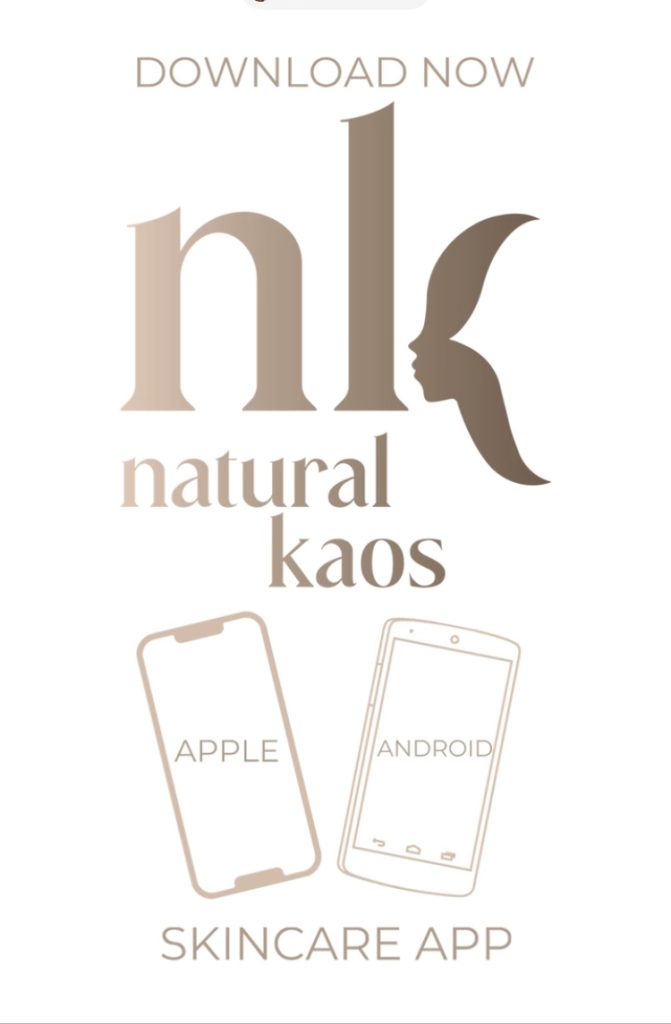
WHERE I PLACED MAYSTER PLLA (FULL HOW TO VIDEO IN THE NK APP)
DESIRED EFFECT FULLER FACE

VOLUME IN CHEEKS
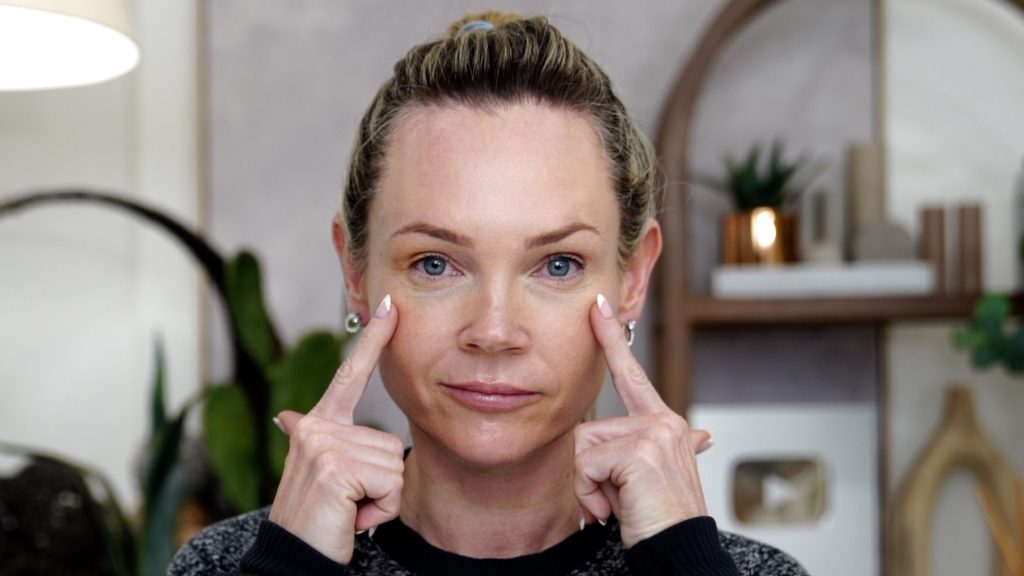
FILL OUT MY TEMPLES
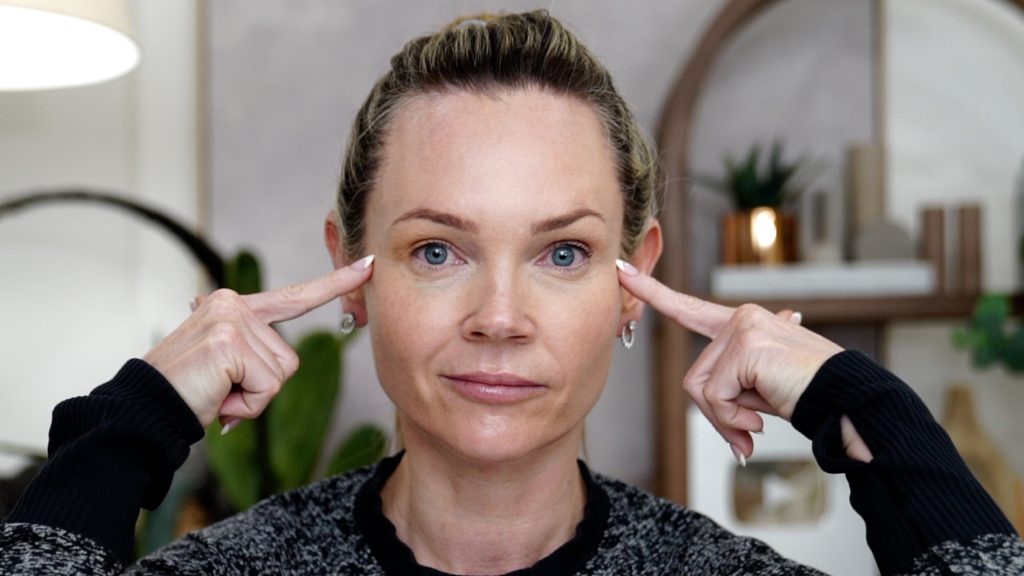
Before I start injecting Mayster PLLA into my face, first let’s understand PLLA, Sculptra, and how these biostimulating products compare to Filler.
What is PLLA?
Poly-L-lactic acid (PLLA) is a biodegradable bioplastic used in formulating dermal injectables. Approved by the US Food and Drug Administration, PLLA is fast emerging as one of the most popular skin rejuvenation procedures worldwide.
PLLA stimulates our bodies’ wound-healing capability by building collagen in the areas where it is placed. This synthetic molecule contains special microspheres. The human body recognizes these microspheres as foreign and produces more collagen, promoting anti-aging qualities. Over time, the PLLA breaks down into carbon dioxide and water, leaving behind collagen for plumper skin.
In 2022, PLLA was further researched, and its labeling improved. This helped the aesthetic industry because the new labeling indicated that PLLA could be mixed with lidocaine, making the application more comfortable. The new label also addressed the idea that PLLA could be placed in different areas and depths of the skin. Further, the reconstitution time was changed from 2 hours right before use, making the flow of use more efficient.
LINK: New PLLA Label Update 2022
These advancements in understanding PLLA and its use have helped more providers use it on more patients, which is why PLLA is becoming so popular!
FILLER V. PLLA
Unlike crossed-linked hyaluronic acid, aka “Filler,” the volume created from PLLA stimulation is natural. It builds over time, unlike a quick plump from filler that fades in a couple of months. PLLA can last and activate collagen for up to 24 months.
*Current PLLA products are not for lip use, except for PLLA threads, which I have placed around my lips to help with structure. For this reason, when it comes to lip volume, filler is still the go-to product for fuller lips. I hope this changes as PLLA products grow in development and offer more lip options.
What is Sculptra?
Many people in the United States might know PLLA as Sculptra.
Sculptra is an FDA-approved injectable filler that consists of Poly-L-Lactic Acid (PLLA) as its primary ingredient and is widely employed for reversing the early signs of aging on the skin.
Sculptra is a collagen stimulator that promotes the natural release of collagen within the body.
It diminishes fine lines and wrinkles by restoring the structure and volume of deep skin tissue. Unlike traditional hyaluronic acid fillers, Sculptra stimulates the body’s natural collagen production process and helps achieve natural-looking results.
Be Patient!
Since Sculptra stimulates a natural biological process, its results develop gradually over a period of time.
The volume or plumpness you initially see following your application of Sculptra will fade. The plumpness is due to the liquid used to reconstitute the PLLA powder. This PLLA powder will go to work over the next 8-12 weeks, encouraging your body’s own collagen to grow.
Keep this in mind, especially if you are getting your temples filled. You will leave it plump as if you had filler placed. However, PLLA is not filler; it’s a bio-stimulator.
Be patient. I know personally that it will take effect, and before you know it, your face will look more plump naturally.
What is the Difference between Sculptra and Mayster PLLA?
At this point, you might wonder, if both Sculptra and Mayster utilize PLLA to induce collagen, why is Sculptra concerned with granulomas and the potential for VO when Mayster can be injected anywhere without fear of granuloma or VO?
This has been difficult to identify, but I think I have the answer after a lot of Google searching.
It concerns the weight of the PLLA molecule. These molecules are measured in Microns, aka Micrometers (μm), which is equal to one-millionth of a meter. (1,000µm is equal to 1mm.)
Sculptra has a molecular weight and size of 40-63 μm. (PLLA)
Mayster has a molecular weight and size of 10-40 μm. (PLA modified)
PLA has a molecular weight and size of 5.4 ~ 20.5 μm (PLA)
In comparison, the Mayster PLLA component is a fourth of the size of Sculptra; in fact, its top range of 40 μm is the low end of the weight that Sculptra maintains. This weight difference obviously impacts the product’s thickness, making it less likely to cause a VO or granuloma. This is also why you don’t need to follow the 5-5-5 massage technique that must be followed when using the larger weighted Sculptra.
Are PLA and PLLA the same?
Another difference I want to address is PLLA versus PLA. Mayster claims it’s PLLA, but when I look at the ingredients, it lists Polylactic Acid (PLA).
Are these the same molecules?

Polylactic Acid (PLA) has been around for more than 40 years. It has a large number of applications. It’s crazy, but this biodegradable molecule is used in everyday products, like 3D printing and cosmetic rejuvenation.
PLA is a polyester “bioplastic” made from fermented plant starch from:
- corn
- cassava
- maize
- sugarcane
- sugar beet pulp.
The sugar in these renewable materials is fermented and turned into lactic acid, which is then made into polylactic acid, or PLA.
Different forms of PLA
PLA comes in various types, such as poly-D-lactic acid (PDLA), poly-DL-lactic acid (PDLLA), and poly-L-lactic acid (PLLA).
PLLA is the derivative found in most facial fillers.
Based on this insight, PLLA is simply one type of material that can be made from PLA.
PLLA Structure
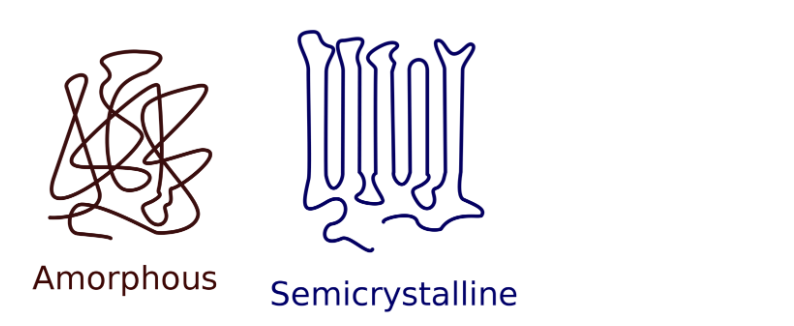
PLLA appears to be weaker in formation than other options. It has a semicrystalline structure, whereas other stronger forms are amorphous. Materials with a lower molecular weight typically have a higher degree of crystallinity with more imperfect crystals.
I believe PLLA’s weaker semicrystalline formation is what makes it ideal for biomedical devices that will degrade over time, preventing future surgical removal. It also works perfectly as an implantable material that will encourage collagen growth and then disappear.
PLLA Sculptra versus Mayster RECAP:
- PLA is created from fermented plant materials and is transformed with Lactic Acid into PLLA.
- This bioplastic is biodegradable and breaks down after 24 months into carbon dioxide and water.
- PLLA is found in thread form and facial injectables, including Sculptra and Mayster.
- PLLA in Sculptra has four times the weight of Mayster, making it a larger particle.
- Mayster appears to be in between PLA and PLLA based on its molecular size of 10-40 μm versus Sculptra’s size of 40-63 μm.
- Because of its larger size, Sculptra should be injected with a cannula, and can cause vascular occlusion and granulomas.
- Following Sculptra, you need to do the 5-5-5 massage technique to help spread the PLLA particles for a consistent application.
- At $1000 per vial, Sculptra is expensive in the United States.
- Mayster has the bio-stimulating attributes that Sculptra does but with a smaller molecular size, making application easier with a 30g needle.
- Mayster can be placed wherever you want to build natural volume.
- Mayster does not have the concern of vascular occlusion or granuloma.
- You do not need to massage Mayster after injecting.
How to use MAYSTER PLLA at home?
Mayster PLLA Booster is considered a meso product. When I refer to a product as meso versus filler or implant, the difference I observe is that I’m not concerned about vascular occlusion (VO).
Many may be familiar with VO’s, which occur when a product with a high molecular weight can block blood flow in a blood vessel. Although this is rare, even with the highest cross-linked fillers, it’s still something to be concerned about and acknowledge.
NUMBING CREAM SET FOR AT LEAST 45 MINS
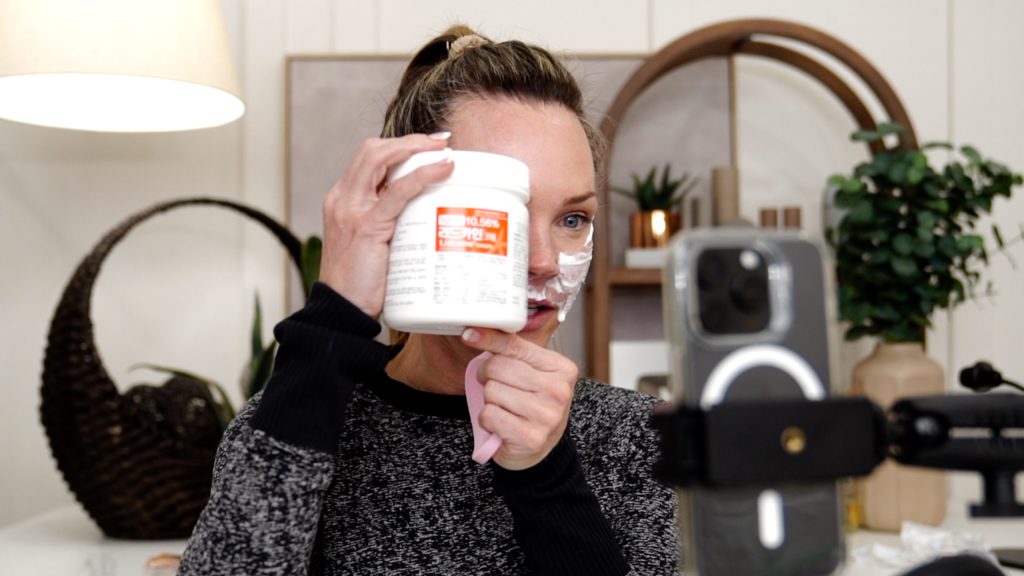
MAYSTER PLLA Comes in a two-vial set:
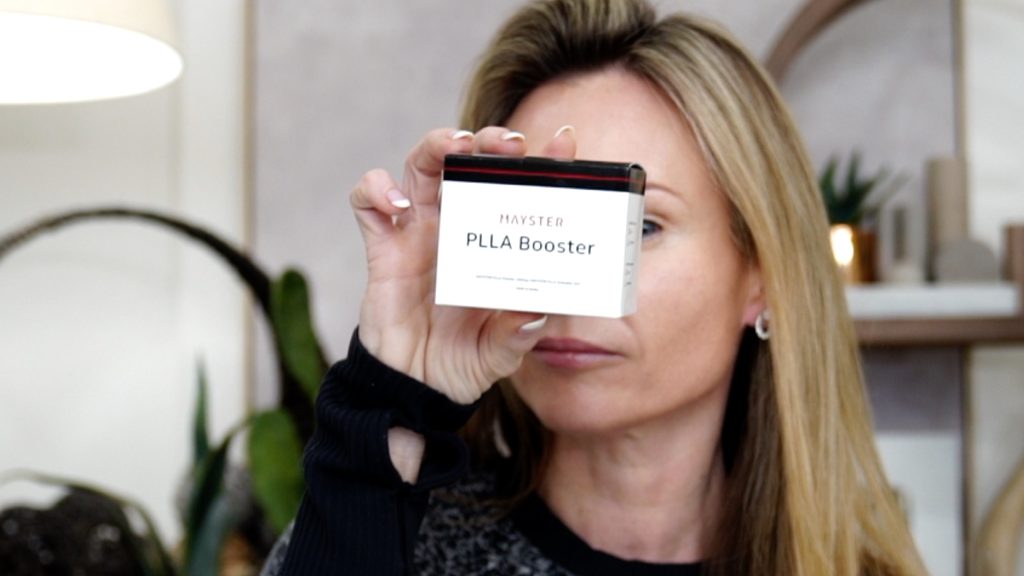
- 5 Solid PLLA Balls (100ml)
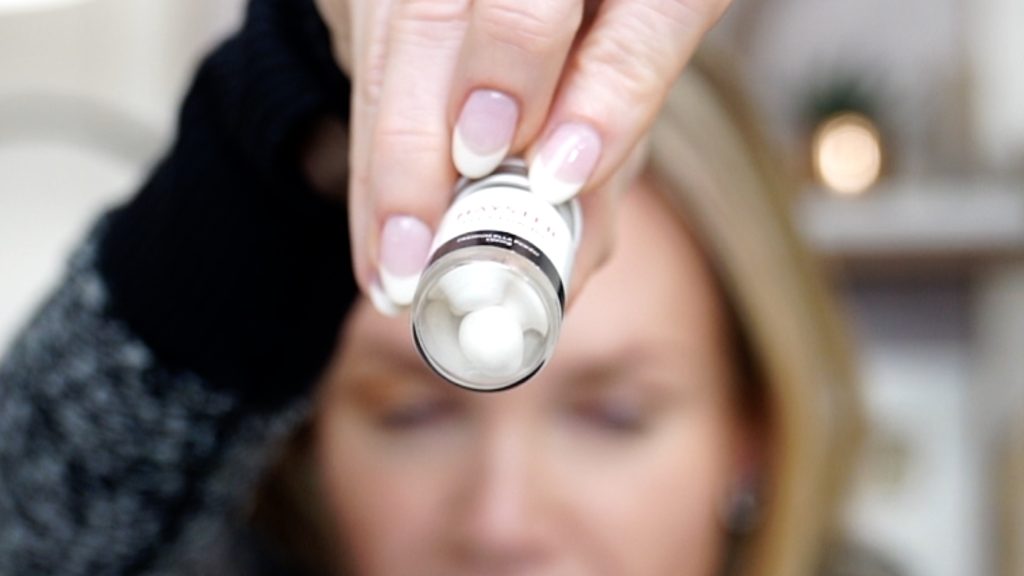
- 5ml Activator, Hyaluronic Acid, Peptides, and Stem Cells
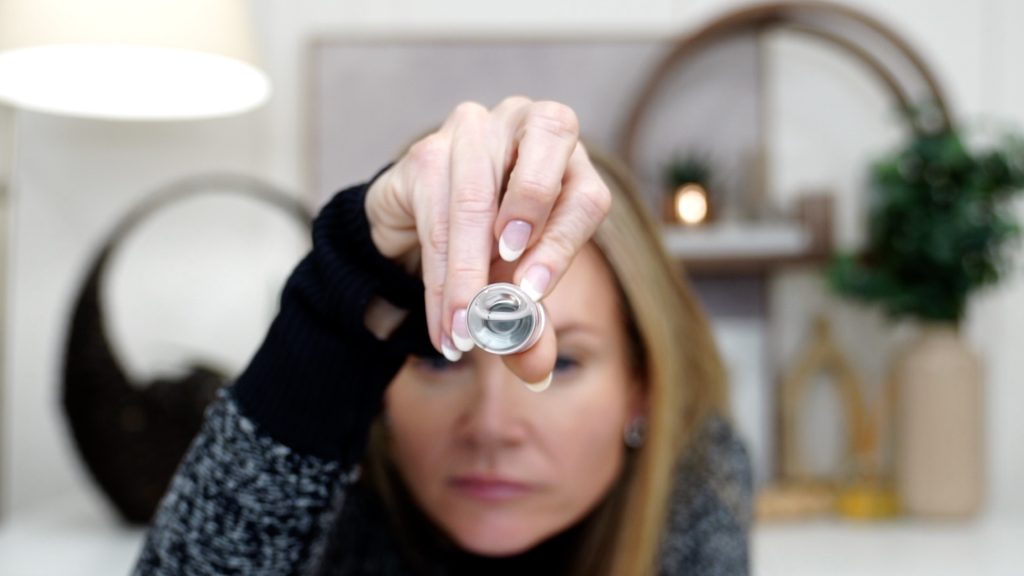
FIRST:
Combine the vials and pour the liquid activator over the PLLA balls.
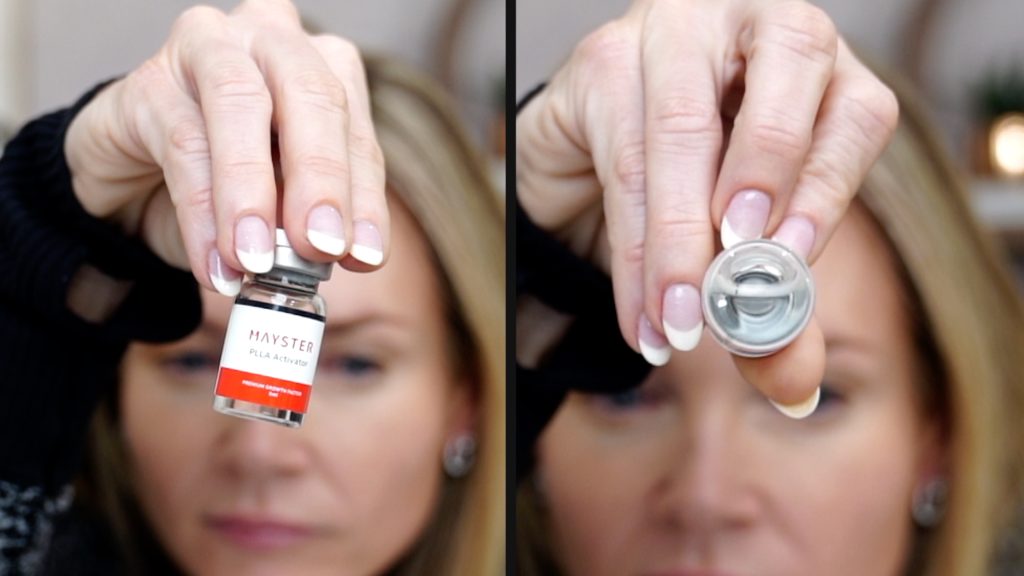
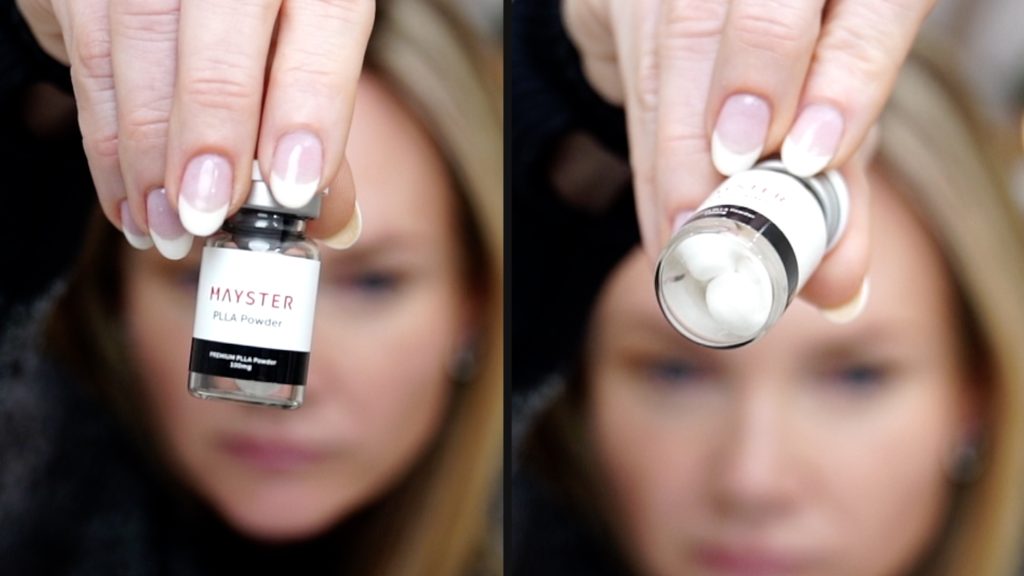
Mix up: this will create 5ml of product.
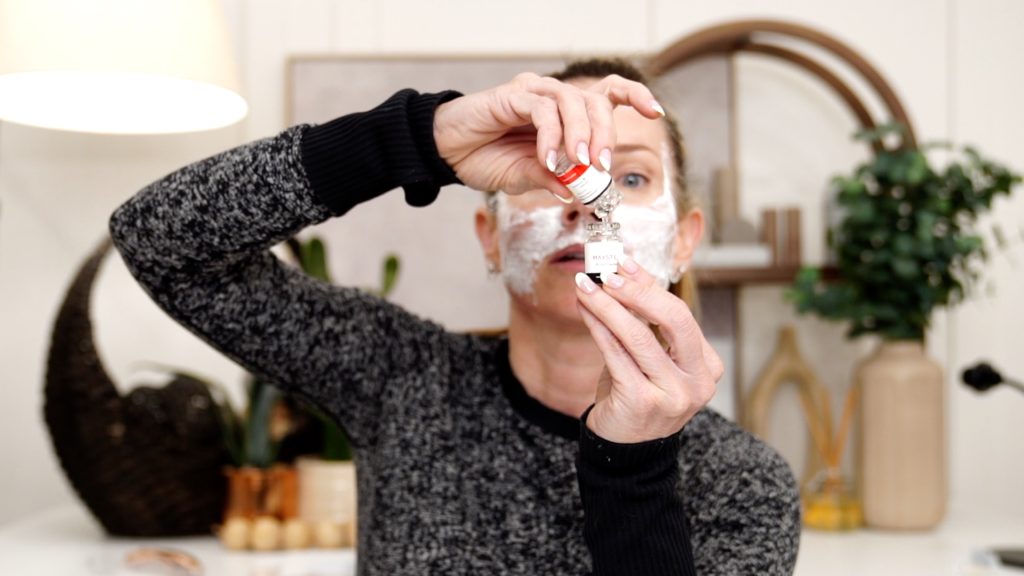
Combine these two vials a few hours before you plan on injecting. It takes a minute to combine into a homogeneous solution.
Divide up into 5, 1ml syringes.
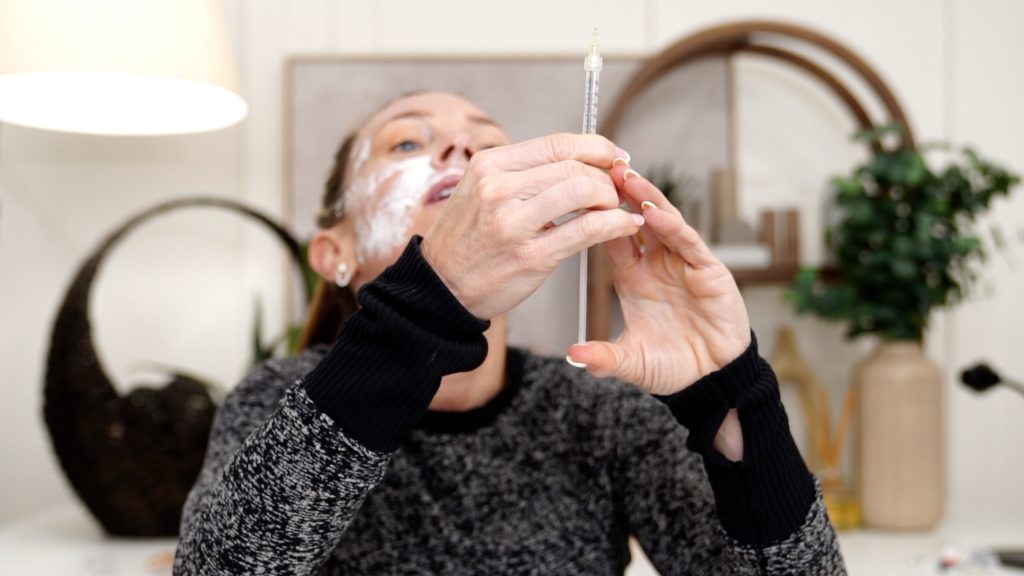
Use a 23g needle to extract the product.
Use a luer lock syringe so you can switch the needle to 30g for injection.
INJECTIONS
TEMPLES CHEEKS ABOVE LIPS
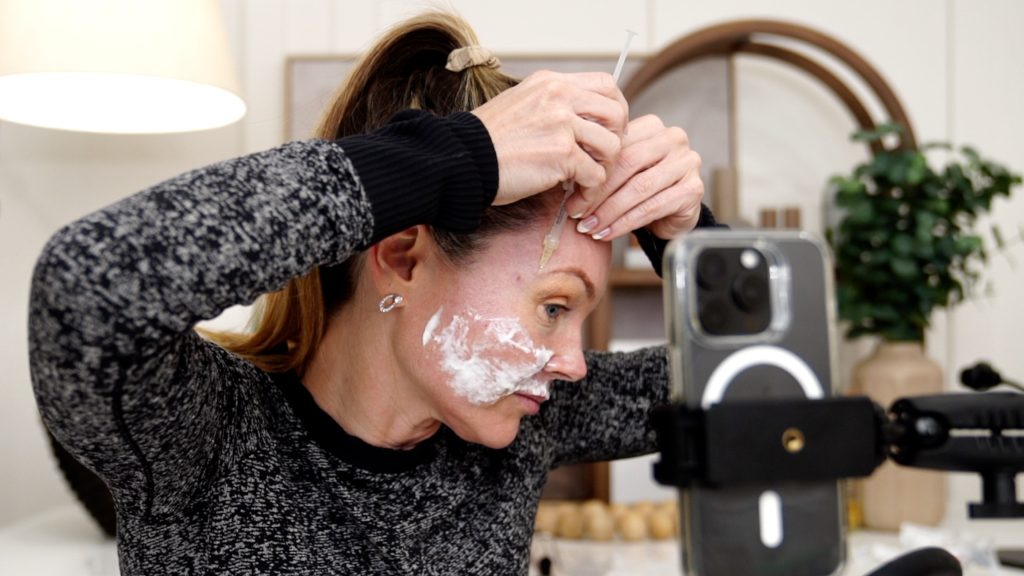
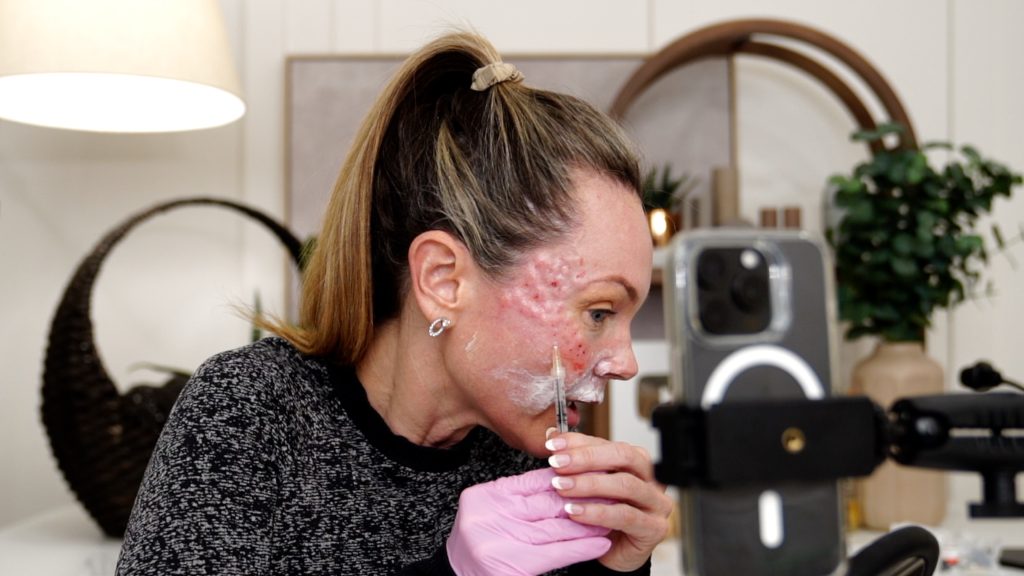
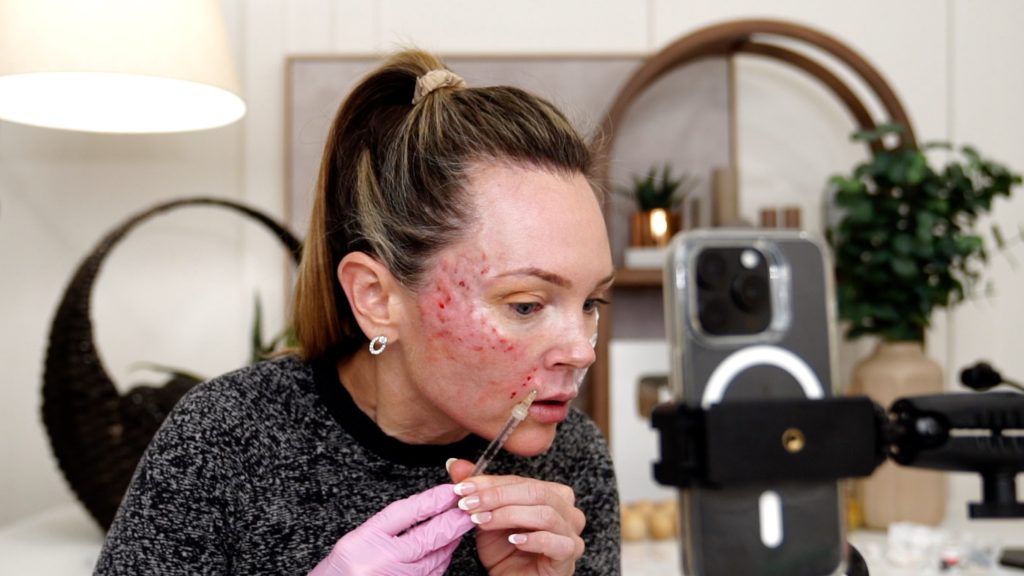
NASAL FOLDS
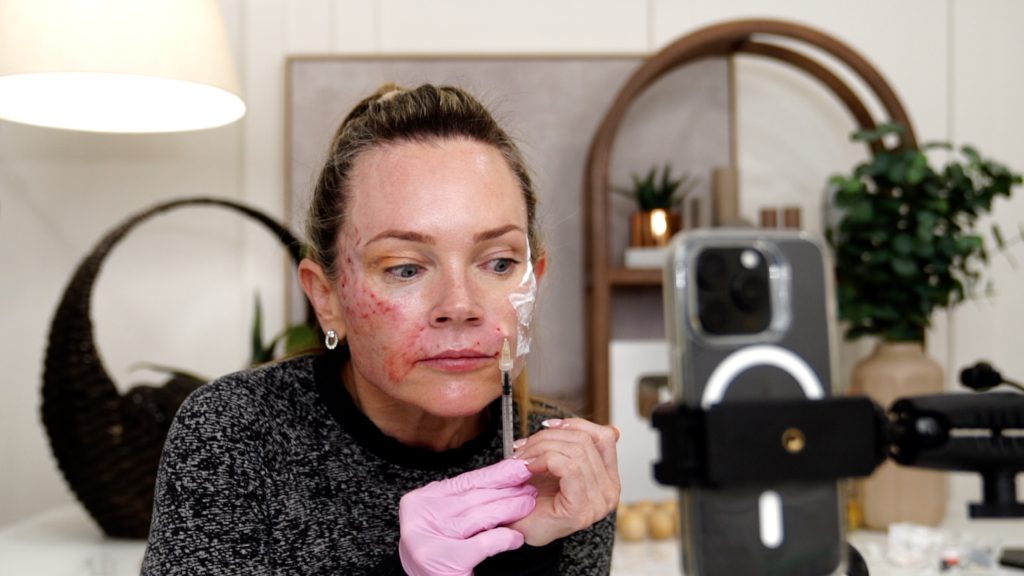
Supplies
CODES:
FILLERHOUSE KAOS20
DERMICS KAOS10
IN APP INFO Mayster PLLA Skin Booster
Watch My Mayster Demo
To watch me and others use Mayster for natural volume in our faces, join the Natural Kaos App, where these weekly Lives happen and are saved for you.
JOIN THE NATURAL KAOS APP

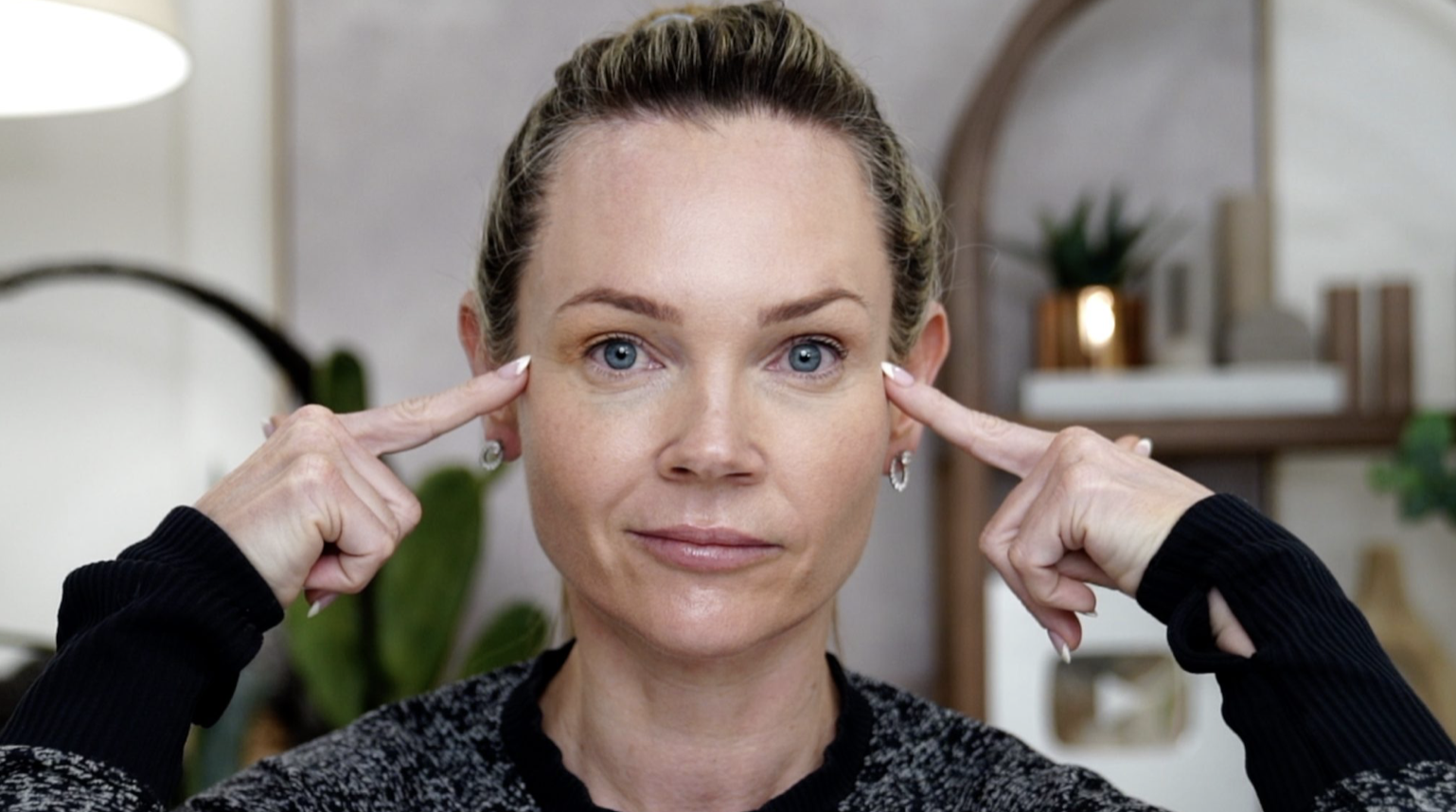
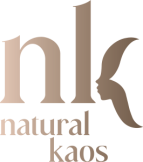
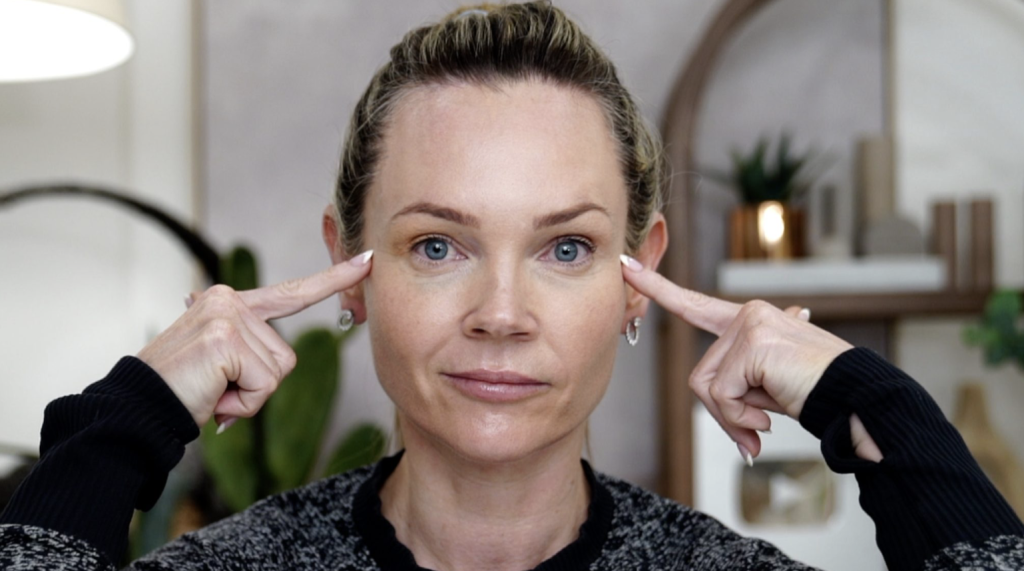
Excellent information on Mayster. How deep do you inject mayster?
All the info is in The Natural Kaos App 😊